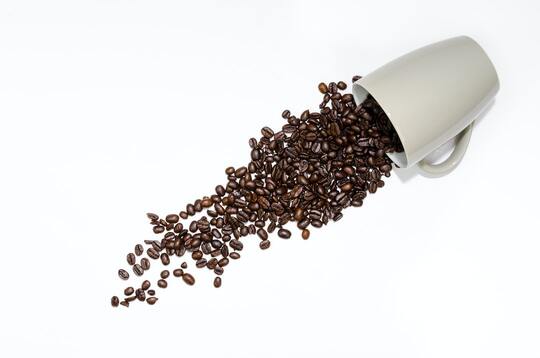You’ve probably heard the saying, “Everything in moderation,” and when it comes to our health, these words of wisdom ring especially true. One of the common conundrums for coffee lovers is understanding how their daily cup of joe fits into a heart-healthy lifestyle, particularly concerning cholesterol levels. So, let’s pour ourselves a fresh mug and dive into what the research says about Is black coffee good for cholesterol ?
The Cholesterol Conundrum
Cholesterol isn’t inherently bad. In fact, our bodies need it to build cells and produce vital hormones. when we talk about maintaining healthy cholesterol levels, we’re usually referring to keeping a balance between LDL (low-density lipoprotein, or “bad” cholesterol) and HDL (high-density lipoprotein, or “good” cholesterol).
Black Coffee: A Bean of Contention
Black coffee is a complex brew with over a thousand different compounds that can affect our health in myriad ways. Two natural compounds in coffee, cafestol and kahweol, have been under the microscope for their potential influence on cholesterol levels.
These compounds are present in the oily part of coffee, and though they have antioxidant properties, they can also raise cholesterol levels.
Black coffee and beyond
Antioxidant Properties: Coffee is rich in antioxidants like polyphenols, which can help reduce oxidative stress and inflammation in the body.
Improved Mental Alertness: The caffeine in black coffee can improve concentration and focus by stimulating the central nervous system.
Weight Management: Black coffee can potentially aid in weight management as it can temporarily suppress appetite and increase metabolism.
Reduced Risk of Certain Diseases: Some studies suggest that regular coffee consumption may be associated with a reduced risk of certain diseases like Parkinson’s, Alzheimer’s, type 2 diabetes, and some forms of cancer.
Enhanced Physical Performance: Caffeine increases adrenaline levels which can enhance physical performance, making it a popular pre-workout drink.
Liver Health: Regular coffee drinking may be linked to a lower risk of liver diseases such as liver cirrhosis and non-alcoholic fatty liver disease.
Improved Cardiovascular Health: While excessive consumption can increase blood pressure temporarily, moderate coffee consumption may contribute to heart health over the long term.
Brewing Methods Matter
Here’s where things get interesting: the amount of cafestol and kahweol that ends up in your cup depends on your brewing method.
Espresso, French press, and Turkish coffee, which do not use paper filters, retain more of these compounds. Meanwhile, using a paper filter captures most of the cafestol and kahweol, significantly reducing the cholesterol-raising elements of your brew.
The Verdict on Black Coffee and Cholesterol
If you’re sipping your filtered black coffee and wondering if it’s impacting your cholesterol, the answer is likely no. But if you prefer unfiltered methods, you might want to pay closer attention.
Of course, individual responses can vary, so it’s wise to discuss with your healthcare provider about how your coffee consumption fits into your overall dietary picture.
Moderation is Key
Like with many things in life, moderation is essential. A couple of cups of black coffee a day could even offer health benefits, like antioxidants and improved concentration. But keep an eye on your consumption, especially if you’re already monitoring your cholesterol levels.
A Heart-Healthy Lifestyle Goes Beyond Coffee
Your diet and lifestyle have the most significant impact on your cholesterol levels and heart health. A balanced diet rich in fruits, vegetables, whole grains, and lean proteins, coupled with regular exercise, not smoking, and limiting alcohol intake provide a solid foundation for keeping your heart beating strong.
Final Sip
So can you continue to indulge in the rich aroma and invigorating taste of black coffee? Most likely yes. Just be aware of how you brew it and enjoy each cup as part of a balanced lifestyle. After all, taking care of your heart is no small beans!
Q: What is the relationship between coffee and cholesterol?
A: Scientific research suggests that the relationship between coffee and cholesterol is complex and may vary depending on individual factors. Some studies suggest that coffee consumption may raise cholesterol levels, while others indicate that it may have no significant effect or even lower cholesterol levels.
Q: Can coffee lower cholesterol?
A: There is some evidence to suggest that certain compounds in coffee may have a beneficial effect on cholesterol levels, particularly in filtered coffee.
Q: Does the way coffee is brewed affect its impact on cholesterol?
A: Yes, the brewing method used to make coffee can affect its impact on cholesterol. Filtered coffee, such as the one made with a drip coffee maker, has been found to have a lesser effect on cholesterol compared to boiled coffee or coffee made with a French press, which retains more oils in the final brew.
Q: Is there a recommended amount of coffee that can be consumed without impacting cholesterol levels?
A: There is no specific recommended amount of coffee that can guarantee no impact on cholesterol levels. Moderate coffee consumption (about 3-4 cups of filtered coffee per day) is generally considered safe and is unlikely to have a significant impact on cholesterol levels for most individuals.
Q: Does instant coffee have the same effect on cholesterol as brewed coffee?
A: Instant coffee may have a different effect on cholesterol compared to brewed coffee due to differences in processing methods. While more research is needed to fully understand the potential impact of instant coffee on cholesterol levels, it is generally believed that filtered or brewed coffee is a better option for minimizing any potential negative effects on cholesterol.
Q: Is there a link between coffee consumption and the risk of heart disease?
A: The association between coffee consumption and the risk of heart disease is still under investigation. Some studies have found a slight increase in the risk of heart disease with high coffee consumption, while others have not found a significant association. Other lifestyle factors and overall diet when assessing the relationship between coffee and heart health.
Q: Can substituting coffee with green tea have a beneficial effect on cholesterol?
A: Green tea is known to contain compounds that may have a positive impact on cholesterol levels. Substituting coffee with green tea could potentially provide some benefits for cholesterol management. Individual responses may vary, and other lifestyle factors should also be considered when making dietary changes.


Leave a Reply